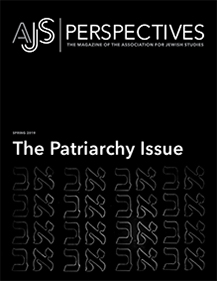



Mannequin Girl by Ellen Litman (W. W. Norton, 2014); The Cosmopolitans by Nadia Kalman (Livingston Press, 2010); Petropolis by Anya Ulinich (Penguin Books, 2008); Panic in a Suitcase by Yelena Akhtiorskaya (Riverhead Books, 2015). Covers courtesy of the publishers.
Did Soviet state socialism kill patriarchy? We automatically picture female tractor drivers or think of the Soviet Union as a state with a very high percentage of professionally active women (85 percent of working-age women in 1988, to be precise). We may also think so because of the large proportion of women writers within the new wave of Russian Jewish American literature—or what I call post-Soviet Jewish American writing—and the presence of unabashed women leaders, women-dominated family structures, and queered genealogies in this fiction. With their stories, Lara Vapnyar, Anya Ulinich, Sana Krasikov, Ellen Litman, and Nadia Kalman intervene in the underlying, often heteropatriarchal, narratives within the context of American Jewishness. Yet, at the same time, they, as well as some male writers of their cohort, demonstrate that patriarchy fares rather well, just under a post-Soviet guise that may not be hegemonic today.
Quite often we tend to think that we know what patriarchy looks like, that we know all its markers “here” and what its apparent features are “elsewhere,” which is usually the namesake for the global South. Within this simple division gender relations in North American Jewish post-Soviet fiction seem tricky. Its characters represent “the new immigrant whiteness,” as Claudia Sadowski-Smith has recently claimed, which may lead us to measure gender relations by what is familiar and dominant in the United States. Also, so many markings of the worlds created there seem progressive to left-loving critics. What fascinates me in this fiction are the details that at a second glance make us see the unfamiliar in the familiar; that show that gendered oppression may hide in the cracks of what may seem, at first glance, a sign of emancipation. I’d like to think about these traps, as it were, that this fiction sets up for its readers as good examples of unapparent patriarchy. Most often it hinges on two characters: the tough immigrant woman and her ailing husband.
In immigrant post-Soviet Jewish fiction the family patriarchs are suffering patriarchs. They suffer because they feel powerless. And the stress falls very often on how they “feel.” What mattered in the Soviet Union, we are told, seems not to be valued here. While it may be the case sometimes, I do wonder to what extent these characters simply say as much to justify the lack of the precise status they used to enjoy rather than a loss of privilege. As in Nadia Kalman’s The Cosmopolitans, in the United States, Osip’s resourcefulness is not pretentiously called “sublime pragmatism” anymore, but still it could be of use, and maybe even is.
It may be easier to feel sorry for—and not just sneer at— the suffering patriarchs who visibly struggle economically, as does Roman in David Bezmozgis’s Natasha and Other Stories. But even in this case his ailing is relative: it is not so much caused by the lack of place but rather a loss of a specific place, a specific career, a more-or-less sudden drop in his status. If Berman still feels he remains a former Soviet Olympic coach, a massage therapy business must feel like a failure in itself.
In other words, the patriarchal privilege as these patriarchs knew it in the Soviet Union does not seem to have traveled. This becomes additionally clear within inter-Jewish masculine hierarchies with established, nonimmigrant American Jews. In these confrontations, post-Soviet heads of the family lose big: their economic status becomes challenged; vis-à-vis religious traditions and practices, their Jewishness, which is secular, is also questioned. Again, Bezmozgis or Kalman are good examples.
How does, then, this brand of patriarchy function? The patriarchs do not seem to give up the status they used to enjoy, nor do they seem to accommodate. The family still revolves around the patriarch, but his feeble emotional state forces his wife to be a do-all robot. The women’s immigrant toughness seems to be quietly imposed on them. While their husbands suffer, they pull up their sleeves and work, taking care of husbands, children, and relatives, with little time left to reflect on how they feel. Stalina in The Cosmopolitans or Marina in Yelena Akhtiorskaya’s Panic in a Suitcase are especially cases in point.
Minus the suffering male and everything it entails, this arrangement dates back to the Soviet family model, where women were supposed to fulfill the primary duty of all Soviet citizens independent of gender, that is, work professionally, but be responsible for home life alone. The ailing husband has all the unspoken demands of the new Soviet patriarch, but under the condition of immigration—or post-Soviet transformation—is unable to fulfill his part of the bargain. The failure of Soviet secular patriarchal arrangements as they knew them is far from the demise of patriarchy. No wonder, then, that the daughters of the immigrant matriarchs see it for what it is, rebel against it, and consequently fail the test of domesticity, as Karen Ryan has noted.
There is more to this fiction than what I described above, more than this leftover from the Soviet system that does not even pretend to work when transplanted, but burdens middle-aged women. Alternative scenarios come mostly from other, less numerous works within this fiction, set in the Soviet Union itself. To name a few: Julia Alekseyeva’s narrative about a great-grandmother, Soviet Daughter, somewhat romanticizes the early twentieth-century Soviet sexual revolution; Lara Vapnyar’s “Lydia’s Grove” tells a story of a (failed) lesbian couple; good chunks of Vapnyar’s The Scent of Pine zero in on communal models that go beyond nuclear family gender order—the Soviet summer camp. Yet these seem to be the necessary margins that define the core of unapparent Soviet and then post-Soviet patriarchy on display in recent fiction in English written by Soviet and post-Soviet Jewish immigrants.

